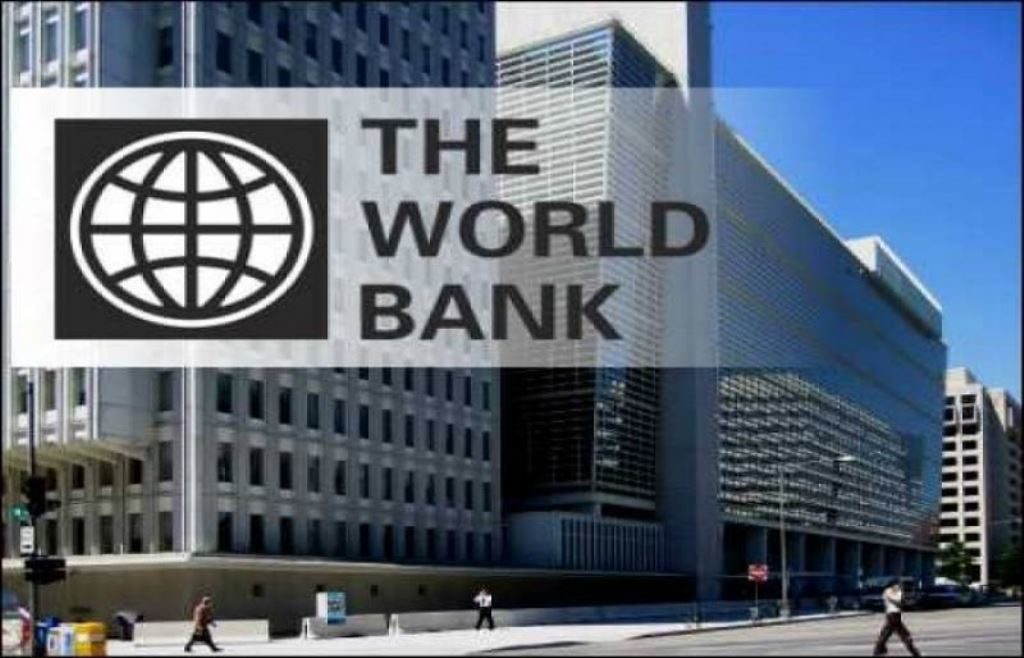
Kathmandu, 27 November 2019–The Government of Nepal and the World Bank signed two separate agreements today to improve employment services and labor market outcomes for Nepali youth and continue support for the government’s flagship School Sector Development Program. The agreements were signed today at the Ministry of Finance by Finance Secretary Dr. Rajan Khanal and the World Bank Country Manager for Nepal, Mr. Faris H. Hadad-Zervos.
“Human capital development and creation of jobs within the country for young people, especially women, is a top priority of the government,” stated Dr. Rajan Khanal, Secretary, Ministry of Finance. “This support for promoting social security and quality education is an important contributor for achieving effective service delivery under Nepal’s new federal structure and our goal of a Prosperous Nepal and Happy Nepali.” Dr. Khanal appreciated the World Bank for its continuous support for the socio-economic development of Nepal.
The Youth Employment Transformation Initiative (YETI) is a new project of US$ 120 million (approximately NRs 13.73 Billion) that aims to strengthen the systems and services for employability including programs such as the Prime Minister Employment Program (PMEP). The project will benefit 100,000 young people, especially women, and will be implemented by the Ministry of Labor, Employment and Social Security over a period of five years.
YETI will support the 753 Employment Service Centers (ESCs) at the local level to increase access to employment opportunities by providing employment promotion and employment support services for registered job seekers. It will also support a holistic National Employment Management Information System (NEMIS) for effective and efficient management and monitoring of the services provided by the project and PMEP, management of data on job seekers and job-related opportunities, and evidence-based employment policy formulation.
The project will create temporary employment opportunities in the maintenance of public assets and provision of services to engage up to 35,000 vulnerable individuals and yield about 3.5 million work-days annually. The temporary employment opportunities will be complemented by on-the-job and life skills trainings of up to 50 days per individual to improve the employability of young people in the long run and ensure sustainability, following the updated PMEP guideline. The project will also support capacity building initiatives to facilitate effective service delivery and coordination in the new federal structure while creating synergies with the private sector and existing projects to promote employment and employment-related services.
Likewise, Additional Financing (AF)of US$ 23.958 million (approximately NRs 2.74 billion) was made available through the Global Partnership for Education (GPE) Grant to support Nepal’s School Sector Development Program (SSDP). The SSDP annually benefits over 7 million students and over 180,000 teachers and early childhood education development (ECED) facilitators in more than 30,000 community schools and ECED centers across the country.
The additional financing will maintain support for the government’s SSDP to improve quality, equity and efficiency within the school education sector. It will also safeguard and maximize SSDP’s development impact during the ongoing federal transition. The additional financing will explicitly focus on education service delivery, especially for the most disadvantaged and setting strong foundations for the decentralized education systems. It will help mitigate risks to education quality and access given heterogeneity in capacity and quality of governance at the local level.
The GPE AF follows the results-based financing used in the parent IDA School Sector Development Program to build on the existing momentum and results-focus by directly incentivizing the government’s ownership and implementation of critical reforms and policies. It also offers more flexibility to tailor interventions to local contexts, which aligns well with the federal transition.
“Once children and young people are given the opportunity to access quality education, skills and meaningful employment, the potential for Nepal’s development can be truly unlocked,” stated Faris H. Hadad-Zervos, World Bank Country Manager for Nepal. “As a trusted partner of the Government of Nepal, the World Bank is committed to invest in people to contribute to Nepal’s growth trajectory.”
 नेजा स्थापना दिवसको अवसरमा शुभकामना आदान-प्रदान
नेजा स्थापना दिवसको अवसरमा शुभकामना आदान-प्रदान
 नेपाली घरमा नयाँ कार्य समितिको चयन (निर्वाचन) मे २६, २०२४ मा हुने
नेपाली घरमा नयाँ कार्य समितिको चयन (निर्वाचन) मे २६, २०२४ मा हुने
 देउताहरु ढुङ्गा हुन
देउताहरु ढुङ्गा हुन
 उपन्यासकार गोपीराम भण्डारीको उपन्यास ‘दृष्टिपथ’ विमोचन
उपन्यासकार गोपीराम भण्डारीको उपन्यास ‘दृष्टिपथ’ विमोचन
 भुवनको तीन तार तीनतिर सार्बजनिक
भुवनको तीन तार तीनतिर सार्बजनिक
 इजरायलमा रहेका नेपालीको आग्रह – जुनसुकै बेला युद्ध भड्किन सक्छ, उद्धारका लागि सरकार तयारी अवस्थामा रहोस्
इजरायलमा रहेका नेपालीको आग्रह – जुनसुकै बेला युद्ध भड्किन सक्छ, उद्धारका लागि सरकार तयारी अवस्थामा रहोस्
 सुनको मूल्यमा नयाँ कीर्तिमान, एकैदिन बढ्यो १ हजार ७ सय रुपैयाँ
सुनको मूल्यमा नयाँ कीर्तिमान, एकैदिन बढ्यो १ हजार ७ सय रुपैयाँ